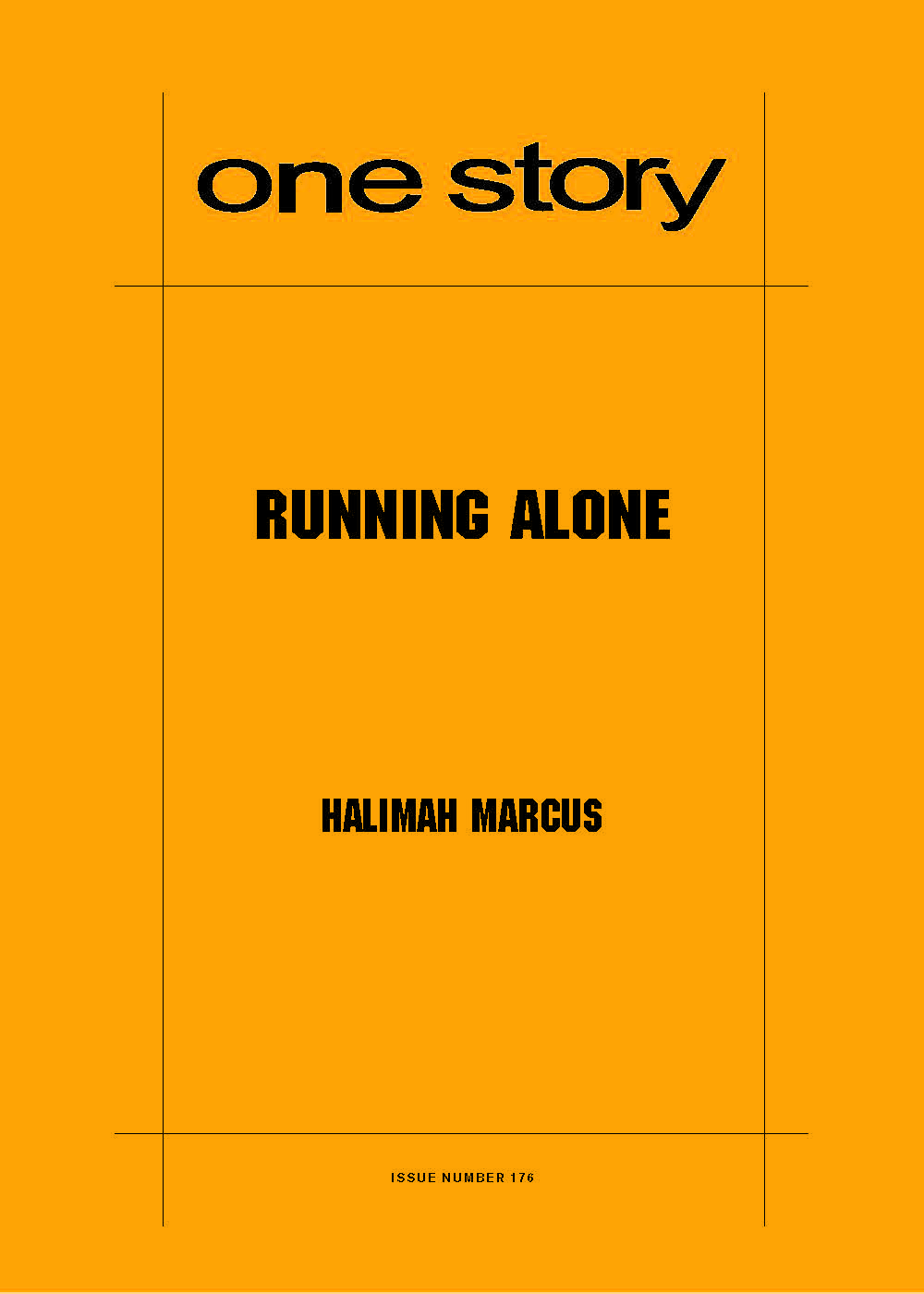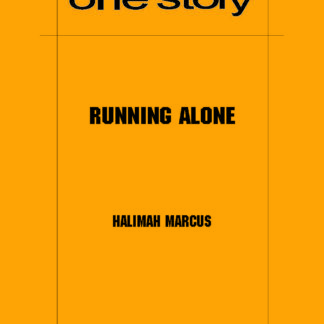
Running Alone
$2.50
40 in stock
Excerpt
When Hunter Porter runs, he thinks about Zachary Abelman, the only runner in the country fast enough to beat him. He forces himself to think about Zachary’s training routines, his times, how badly he must also want to win. Taped to his bedroom mirror is a picture of Zachary winning last year’s National Championships—a race that is only two months away. They will meet for the first time on the starting line, get to know each other through peripheral vision, make first impressions by goading each other into pain. Every morning when Hunter wakes up, he looks at the snapshot and pilfers from it even more motivation, the final incentive that will make his success an absolute. In the picture, Zachary is crossing the finish line. His chest is forward and his head is back, his thick blond hair sweaty and alive, reaching behind to measure the distance to the closest runner, who is no longer a threat.
Halimah Marcus
Halimah Marcus is co-editor of Electric Literature. Her fiction has appeared in The Fiddleback, The Fiction Desk, and Philadelphia Noir. She has an MFA from Brooklyn College and lives in Brooklyn, NY.
Q&A by Hannah Tinti
- HT: Where did the idea for this story come from?
- HM: There was an article in Runners World about two of the current top middle/long-distance runners in the United States—Ryan Hall and Dathan Ritzenhein—racing in Foot Locker National Cross Country Championships when they were in high school. Reading it, I was drawn to the predictive quality of the story; here they were, two future greats, unaware of what they would become. Although the possibilities of Hunter and Zachary’s future careers didn’t make it into the story explicitly, they informed my thinking about Zachary and Hunter’s rivalry, and the culminating race. Around the same time I was also reading about Steve Prefontaine—a famous American middle/long-distance runner who was killed in a car accident at 24. “Pre” hated running the way Hunter does, with negative splits (each lap faster than the previous). He thought it was dishonest not to leave everything he had on the track, and that winning through calculation was somehow impure; a mindset that occasionally caused him to lose. I saw possibility in the tension between competing from a place of emotion and competing from a place of strategy, a tension that plays out between Hunter and Albert and again in the final race. Other fun facts/tips about Steve Prefontaine: 1) If you want to watch a movie about him, Without Limits starring Billy Crudup is immeasurably better than Prefontaine starring Jared Leto, which is unwatchable. 2) In the photograph, Zachary has Prefontaine’s hair.
- HT: What was the most challenging aspect of writing this story?
- HM: Bringing the race to a satisfying conclusion wasn’t easy. I was reluctant to write a play-by-play, worried the scene would give over to sports journalism. I’d revised the end several times, but due probably to my anxiety, the final scene always came out truncated. Hannah really helped me push through. She was like a boot camp instructor that pretends each pushup is your last—just add one more sentence to the end, one more, last one—until we got it to where it needed to be.
- HT: Are you a regular runner? Did you take some runs as you were writing this story, to get into Hunter’s POV?
- HM: I’m a creature that responds well to deadlines. Which means that if I’m training for a race, I’m a regular runner. I began “Running Alone” when I was preparing for my first half-marathon—getting into the story and getting into running went hand in hand—and I thought about Hunter many times during those laps around Prospect Park. I’ve never pushed myself as far into pain as Hunter has, but long runs did help me find the language to describe his superior level of effort.
- HT: Was it hard to then switch to Albert and Irene, the other POVs in this story, and to keep them balanced?
- HM: The three characters arrived nearly fully formed in my mind, though Irene, who is in many ways the true outsider of the trio, took a bit more work. Because each has their own personality, balancing them, which is as much a matter of weight as it is word count, was as easy as these things get for me, which is to say, still pretty difficult.
- HT: How do you think the physical and the emotional stories in “Running Alone” are connected?
- HM: Our bodies are like isolation pods that preserve our aloneness and prevent us from fully merging with other people. Sex and pregnancy, when one body penetrates or occupies another, are the two exceptions. But those experiences are fleeting when evaluated in proportion to a lifetime. In biological families there’s a presumed connection of flesh and blood, but how is that experienced? I tried to give the story a consciousness that Albert, Irene, and Hunter aren’t privy to, but that allows the reader to understand ways in which the characters are connected that they themselves cannot perceive.
- HT: There is some serious math in these pages! Did you have to do research? Or were you a math major? Why did you decide to include it in “Running Alone.”?
- HM: I was good at calculus in high school, but haven’t touched it since. After a little refresher on the basic concepts it started to come back to me, though I’m sure mathematicians will be emailing their corrections. An article called “Dream Machine” that Rivka Galchen wrote for the New Yorker gave me the idea for Albert’s job.
- HT: You’re also co-editor at Electric Literature. Has your editorial work affected your writing at all? Changed how you do things?
- HM: Reading so much unpublished work has really made me appreciate honesty and originality; there is so much safety in mimicry. As an editor, that’s a good thing, but as a writer, holding originality up as the ultimate goal can lead to stillborn stories, because stories become original through telling, they don’t start out that way.
- HT: How long did it take you to complete this story?
- HM: I wrote the first draft in January 2010.
- HT: What are you working on now?
- HM: Revision, revision, revision.
- HT: What is the best bit of advice about writing you have ever received?
- HM: Write like you don’t have parents. Which I take to mean: write about your parents, but as if they will never read your work and neither will their friends. So far, I’ve been unable to take this advice.
